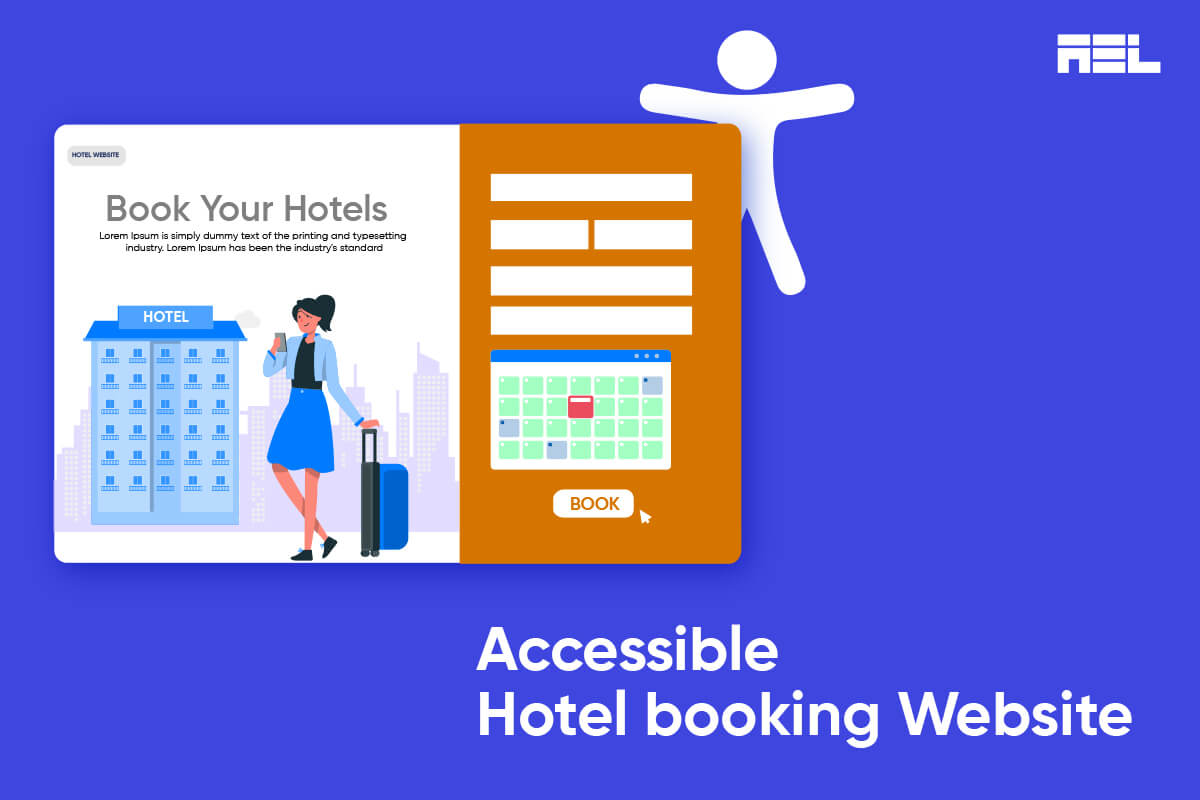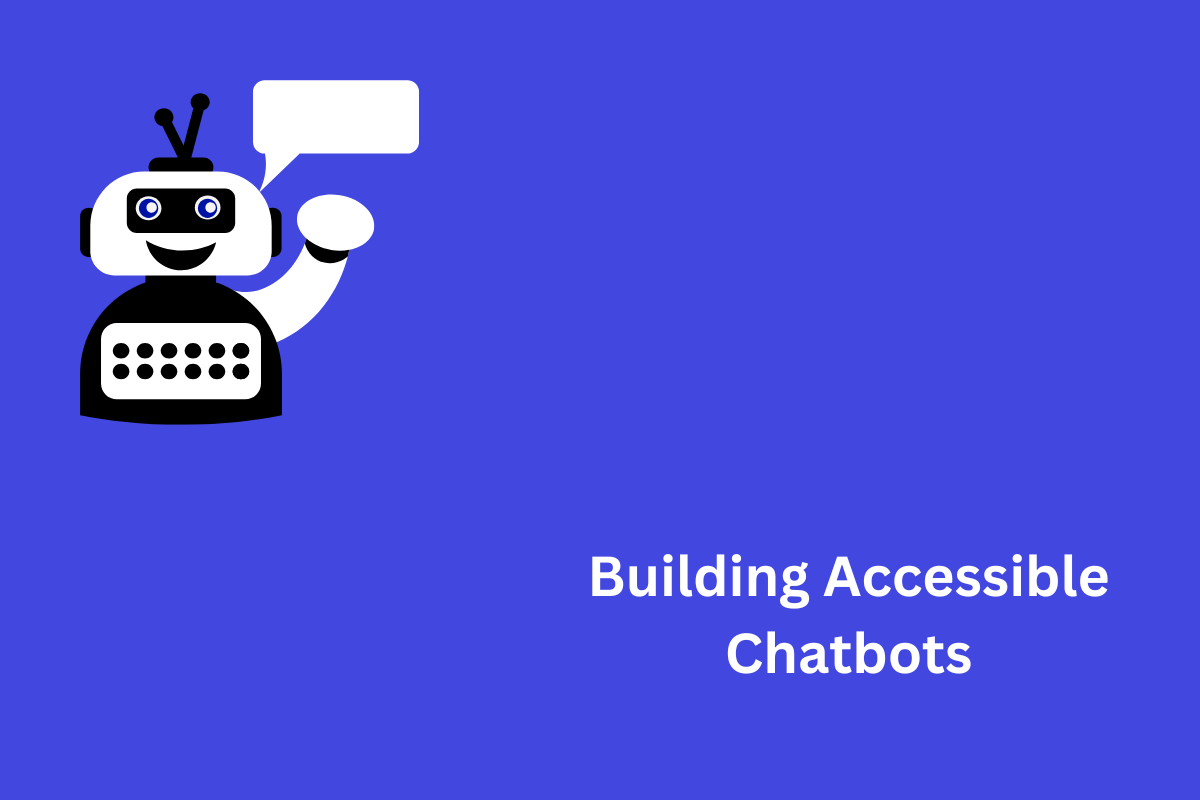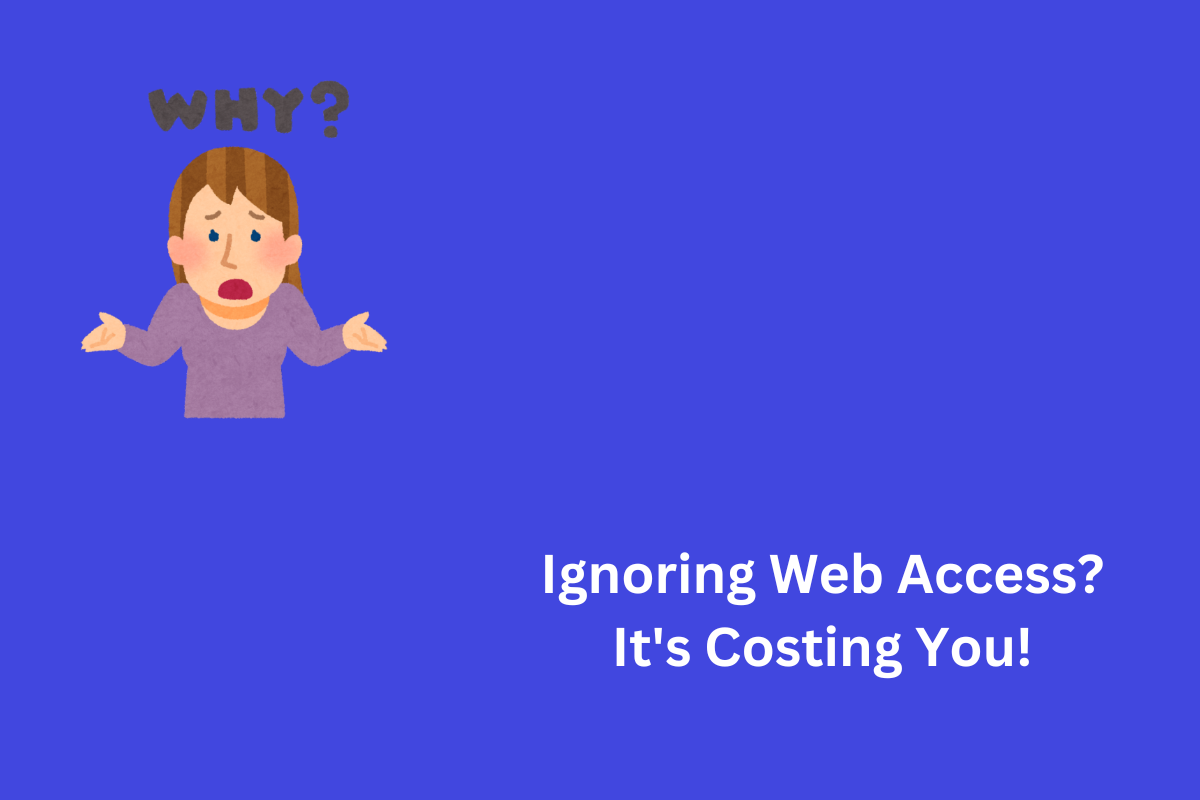The hospitality industry faces challenges in attracting customers and increasing revenue for 15% of the world’s population with disabilities. Poor design, a lack of accessibility features, and incompatible technology hinder their access to hotel booking websites. In today’s digital age, web accessibility is crucial for hotel businesses. This article discusses the benefits of accessible hotel booking websites, challenges faced by users with disabilities, features, legal requirements, compliance issues, success stories, and implementation tips. It also provides resources for making hotel booking websites more accessible.
Table of Contents
- 1 Understanding Web Accessibility
- 2 Benefits of an Accessible Hotel Booking Website
- 3 Challenges Faced by Users with Disabilities in Hotel Booking
- 4 Features of an Accessible Hotel Booking Website
- 5 Legal Requirements and Compliance
- 6 Success Stories: Hotels with Accessible Booking Websites
- 7 How to implement Accessibility
- 8 Conclusion
Understanding Web Accessibility
Web accessibility refers to designing and developing websites, tools, and technologies so users with disabilities can access them. This includes ensuring that people with auditory, cognitive, neurological, physical, speech, and visual disabilities can perceive, understand, navigate, and interact with the web. Web accessibility also benefits people without disabilities, such as older people with changing abilities due to aging or using mobile devices with small screens.
Benefits of an Accessible Hotel Booking Website
A user-friendly hotel reservation system can yield numerous perks. Initially, it guarantees that your enterprise does not unfairly exclude prospective clients and offers equal exposure to all visitors. This can help improve your business’s reputation and attract a wider customer base.
Moreover, a user-friendly hotel reservation platform can enhance the overall customer experience.
For instance, presenting straightforward and organized content can be advantageous. This is true for everyone, not just individuals with impairments.
An intuitive hotel booking system can significantly enhance both bookings and revenue. By making it easy for all users to book a room at your hotel, you are more likely to attract customers. This will lead to increased occupancy rates.
Challenges Faced by Users with Disabilities in Hotel Booking
Despite the importance of web accessibility, many hotel booking websites still present challenges for users with disabilities. These challenges can include difficulty navigating the website or finding information about accessibility features at the hotel.
In some cases, users may be unable to book a room due to inaccessible forms or other barriers.
Features of an Accessible Hotel Booking Website
For a hotel’s booking website to be accessible, many factors need to be considered, such as:
- Clear and concise information about accessibility features. For example, if your website has different accessibility modes, ensure that users are completely informed.
- Maintain sufficient contrast between text and background. Furthermore, ensure that all sentences and words have consistent spacing between them.
- Provide proper labels for all booking forms and ensure that they are user-friendly.
- Avoid using stylized fonts, as they are not accessible to all users. Instead, use sans-serif fonts.
Legal Requirements and Compliance
Hotels must comply with legal requirements and regulations to ensure accessibility on their websites. For example, The ADA in the US prohibits disability discrimination in public accommodations. Failure to adhere to these laws can result in legal consequences, such as fines and reputational damage.
Success Stories: Hotels with Accessible Booking Websites
Many success stories of hotels implementing accessible booking websites have seen positive results. For example, some hotels have reported increased bookings from customers with disabilities after improving the accessibility of their websites. Others have received positive feedback from customers about the ease of use of their accessible booking systems.
Marriott International
Marriott, a global hotel chain with over 7,000 properties in 131 countries, prioritizes web accessibility as a core value. Adopting WCAG 2.0 Level AA as its web accessibility standard, Marriott implements various features and functions to make its website accessible to all customers. A dedicated team of web accessibility experts and advocates oversees and monitors efforts. Marriott has received positive feedback and recognition for its leadership and excellence in web accessibility.
Hilton Worldwide
Hilton, a global hotel chain with over 6,000 properties in 113 countries, is committed to web accessibility. Following WCAG 2.0 Level AA, Hilton incorporates elements and enhancements to make its website accessible to all users. The company partners with the American Foundation for the Blind, the National Federation of the Blind, and the U.S. Department of Justice to support web accessibility. Hilton has received numerous awards for its web accessibility achievements.
How to implement Accessibility
Implementing accessibility on hotel booking websites is an ongoing process that requires planning, execution, evaluation, and maintenance. Hotels can follow these steps:
- Conduct an accessibility audit to identify strengths, weaknesses, opportunities, and threats using tools like WAVE, WCAG, and user testing.
- Define an accessibility strategy outlined by goals, objectives, scope, timeline, budget, roles, responsibilities, and metrics aligned with the hotel’s vision, mission, values, and brand identity.
- Implement an accessibility plan with detailed actions and tasks, and set priorities accordingly to accomplish it.
Conclusion
To sum it up, having an accessible website for your hotel will not only help you attract more customers but is also a vital requirement for any business in the hospitality industry. Accessibility will also enhance the user experience, which, in turn, builds trust among your users. In today’s digital age, more people value and evaluate companies’ moral stand toward building an inclusive website. An accessible site design is beneficial for all users, regardless of the technologies used to interact with your website. At AEL Data, we have a team of specialists who carefully audit each web page to identify and remediate issues. Contact us if you need help at info@aeldata.com



